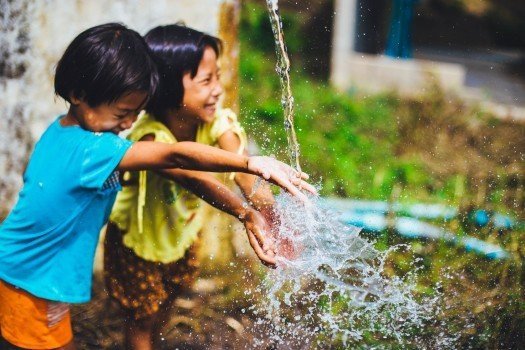The importance of friendship in preschool
Preschool is the age when children start to make friends and build relationships with their peers. We know that friendship is important during the early years because this is a time children learn about the ‘give and take’ of relationships. By sharing experiences, feelings, and interacting with one another, children learn how to meet the social needs of themselves and others.
In preschool, children start to play more with others and begin to form friendships. They learn how to take turns, share, and include others at home or in their classroom. Doing what other children may want to do, understanding the way others may feel, playing group games, and participating in group activities are some of the first things children do when learning how to build and develop friendships.
Friendship skills children are learning
| Skill | Example |
|---|---|
| Patience | When children wait for their turn, take turns and share with others. |
| Communication | Talk and listen to others. |
| Empathy | Respond to others’ feelings with understanding and take the perspective of others. |
| Consideration | Say please and thank you, and are helpful to those around them. |
| Play Skills | Make suggestions for play roles and ideas. |
| Social Skills | Learn cooperation, communication, empathy, responsibility, and emotional control. |
Being a positive role model
Provide opportunities for children to experience all aspects of friendship, which are beneficial to their overall development and learning. Making friends can be hard, especially for young children who may not know how to share their feelings or emotions with others. As an educator or parent, you can be a positive role model and show children the right ways to interact with others. As a caregiver, you can support your child’s friendships by:
- Providing encouragement
- Modeling reciprocity and empathy for others
- Showing how to include others in play
- Having playdates and providing opportunities for your child to meet others
- Talking and listening to your child

Classroom friendship activities for preschoolers
Circle time idea
What is a friend?: During group time, ask the children what they think a friend is and write their answers down on a large piece of paper taped to the board. To extend their answers, ask the children what friends do for each other. This will provide an open discussion with the children about friendship.
Block center idea
Team building: Provide a variety of blocks and encourage the children to build a tower, castle, or house together. This will give the children the opportunity to work together to build something, take turns and share the blocks given.
Artwork idea
Friendship chain: Provide the children with different colored construction paper with pre-drawn lines and without, and scissors. Ask the children to cut the construction paper into strips. Help the children glue the links together to create a friendship chain. You can hang this in your classroom as a reminder of working together as a group.
Great books for preschoolers about friendship
Any of these books will be a great addition to your library to help teach preschoolers the value of friendship.
How Do Dinosaurs Play with Their Friends?
By Jane Yolen and Mark Teague

This is the perfect book for teaching your preschoolers about how friends are generous, kind, thoughtful, and caring.
Friends
By Helme Heine

This is a great book for teaching children about friendship and how to be a good friend – such as “good friends are always fair”. The story follows three best friends who go on an outing together, where they pretend to be pirates, discover a boat, pick cherries and play hide-and-seek.
Share and Take Turns
By Sherri J. Meiners

This book is great for the classroom and for at home, which teaches young children how to get along with others. The book teaches simple lessons on what it means to get along with others and the different forms of sharing (e.g. taking turns or trading).
As preschool children learn the importance of friendship and the ‘give and take’ of relationships, we as parents and educators can support these skills by providing opportunities for children to experience all aspects of friendship.


